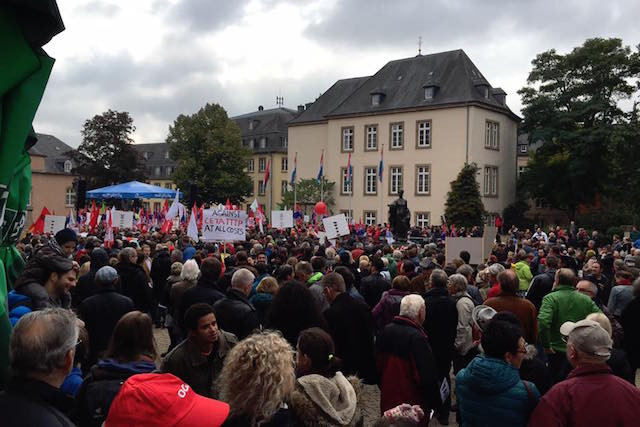The current 80-80-90 regulation, which standardises interns’ salaries in the public sector, is heavily debated.
Under the regulation, newly hired civil servants are considered “interns” for the first three years of their employment. During the first two years, they earn 80% of the regular initial salary for their post, and in the third year, they receive 90%.
The CGFP wants to eliminate the regulation, which was introduced under the former CSV-LSAP coalition government.
According to its press release published on 6 October, CGFP’s president, Romain Wolff, stated that the 80-80-90 regulation was unnecessary during what the union characterised as the current economic boom:
“The 80-80-90 regulation is a pointless, contra-productive cost-saving measure which creates hiring difficulties for the state. It needs to be abolished immediately!”
Moreover, Wolff said that many of the interns in civil service do not have a training period, but immediately start with a full work load. A salary reduction was “no longer acceptable” under these circumstances, in Wolff’s opinion.
Possible protest
Disappointed by the civil service ministry’s unresponsiveness to their demands, the CGFP, in a 16 October press release (PDF), called for talks with the LSAP civil service minister, Dan Kersch. The confederation said in its announcement:
“If there is no reaction from the government, then the national board of the CGFP will consider a large-scale protest event before the end of November.”
In an interview for a RTL broadcast on Tuesday 17 October, Kersch reacted to the demands of the trade union by saying that the current wage agreement does not permit a modification of the 80-80-90 regulation. The minister noted that the CGFP agreed on the regulation with the former government and that they did not address the matter back in December 2016, when the last wage settlement was signed.
Kersch noted in the RTL interview that an abolishment of the regulation would cost the state €40m a year. The next round of contract talks are expected in 2019.
